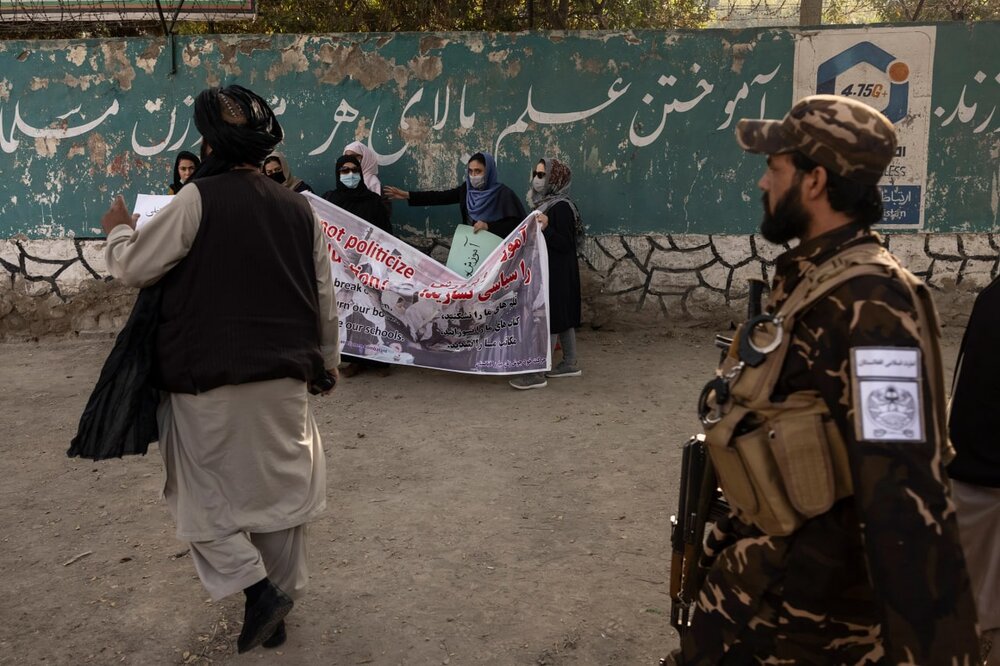Iran stresses Afghan women’s right to education

TEHRAN – Iran has expressed regret over the Taliban's move to suspend education for girls at Afghan universities, underlining the need for ensuring Afghan women and girls have access to education.
Iranian Foreign Ministry spokesman Nasser Kanaani has said Iran, as a neighbor of Afghanistan that is interested in peace, stability and development in the country, regrets to hear the news that Afghan girls and women are facing obstacles for studying at universities.
He added that the Islamic Republic of Iran hopes the relevant officials in Afghanistan pave the way for the resumption of education for female school and university studies at all levels so that they can enjoy their right to acquiring knowledge and science and play a more effective role in the development and prosperity of the country, according to the Iranian foreign ministry.
Also, Amir Saeid Iravani, Iran’s ambassador to the United Nations, highlight the challenging situation in Afghanistan especially when it comes to the rights of women and girls.
“Despite the UN’s efforts, the current situation in Afghanistan is challenging. The Secretary-General’s latest report indicates that 28.3 million Afghans will require humanitarian and protection assistance in 2023, up from 24.4 million in 2022 and 18.4 million at the beginning of 2021,” Iravani said in a statement to a United Nations Security Council briefing.
He added, “Meanwhile, the de facto authorities have failed to keep their pledges, particularly on the establishment of an inclusive and representative government. On the economic situation, the Secretary-General report states that the de facto authorities have so far implemented positive steps, including anti-corruption efforts, which can serve as a basis for a stable and recoverable economic condition in the years ahead.”
Iravani continued, “While humanitarian assistance is vital for Afghanistan, it is not a long-term solution, and the country's economy must take priority. If the Afghan economy's revival is conditional or political, the Afghan people will suffer and be harmed. In the meanwhile, the humanitarian crisis in Afghanistan should not be overlooked or overwhelmed by other conflicts. As we have often emphasized, frozen assets belong to the people and must be unconditionally returned in order to help the Afghan economy. Regrettably, rather than accepting responsibility for its reckless withdrawal, the US has resorted to unfounded grounds to justify its unlawful acts, including the continued blocking of assets, which are critical for economic revival. Sanction regimes, however, must not obstruct attempts to rebuild the economy.”
He said, “We support UNAMA's efforts and its contact with de facto authorities to help the Afghan people, particularly in terms of scaling up the humanitarian response and striving to end the economic calamity. At the same time, de facto authorities must uphold their international obligations, particularly by ensuring Afghan women and girls have access to education. For the benefit of the people, the international community must sustain its engagement with Afghanistan.”
Iravani also called for burden-sharing in accepting Afghan refugees. “We have said time and again that Iran and other neighbors should not bear the whole responsibility of admitting Afghan refugees. On the basis of shared responsibility, other countries, in particular those that assert to support the human rights of Afghans, especially women and girls, should accept refugees.”
